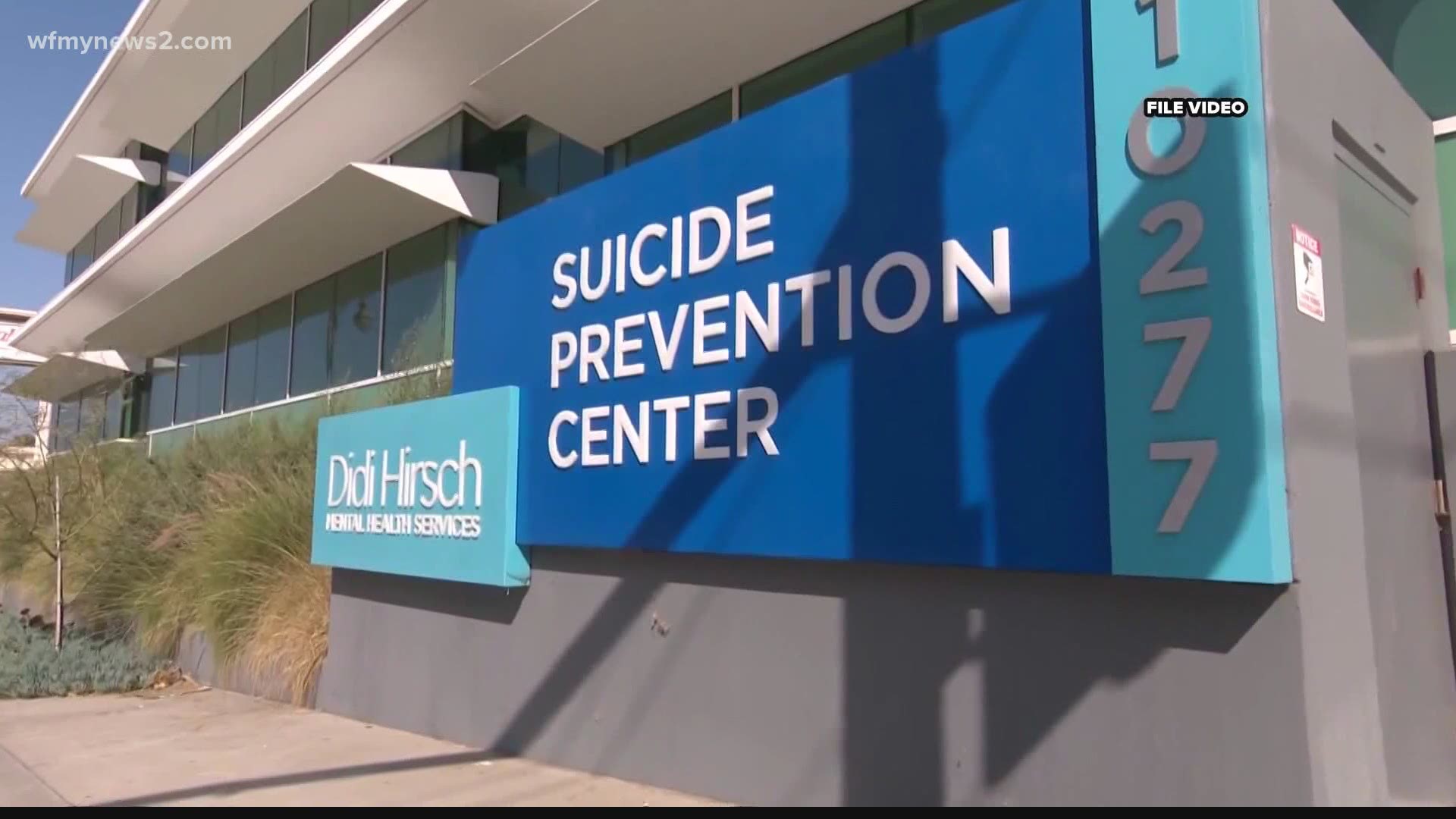GREENSBORO, N.C. — Suicide is a global health issue. According to the World Health Organization, close to 800,000 people die due to suicide every year. That's one person every 40 seconds.
In the U.S., statistics show, suicide is the 10th leading cause of death with about 132 suicides per day. The ongoing coronavirus pandemic is worsening the problem across the country. According to a CDC report, during late June, about 40% of U.S. adults reported struggling with mental health, substance abuse or suicidal thoughts.
“For people feeling overwhelmed, there are counselors, therapists, and a variety of things they can do to get help before it gets to a crisis type of situation,” said Mindy France, a behavioral therapist at Novant Health.
Since September is National Suicide Prevention Awareness Month, you might want to consider lending a helping hand to people struggling with mental health issues. The annual campaign is geared towards encouraging others to reach out to people affected by suicide, raise awareness and connect individuals with suicidal ideation to treatment services.
One way to help raise awareness about the public health issue is to know the warning signs and risk factors associated with suicide. According to the National Alliance on Mental Illness, comments or thoughts about suicide can begin small, such as “I wish I wasn’t here” or “Nothing matters.” But, over time, they can become more explicit and dangerous. Here are a few other warning signs of suicide:
- Increased alcohol and drug use
- Aggressive behavior
- Withdrawal from friends, family and community
- Dramatic mood swings
- Impulsive or reckless behavior
Research also shows 46% of people who die by suicide had a known mental health condition. Several other things may put a person at risk of suicide, including:
- A family history of suicide
- Substance use. Drugs can create mental highs and lows that worsen suicidal thoughts.
- Intoxication. More than 1 in 3 people who die from suicide are under the influence of alcohol at the time of death.
- Access to firearms
- A serious or chronic medical illness
- Gender. Although more women than men attempt suicide, men are nearly 4x more likely to die by suicide.
- A history of trauma or abuse
- Prolonged stress
- A recent tragedy or loss
You can help save a life by starting the tough conversation, providing support, and directing professional help to those who need it. When talking to a loved one, NAMI suggests, adopt an open and compassionate mindset. Active listening techniques, such as reflecting their feelings and summarizing their thoughts, can help your loved one feel heard and validated.
“When talking to a loved one, you should express that you will be there with them throughout the process to help them get help,” France said. “I think people feeling alone is a huge catalyst for depression. If you let them know that you're there for them, it can be a huge motivator for them seeking help and wanting to feel better.”
If you or someone you know is in an emergency, call 911 immediately. If you are in a crisis or experiencing difficult or suicidal thoughts, call the National Suicide Hotline at 1-800-273 TALK (8255). If you’re uncomfortable talking on the phone, you can also text NAMI to 741-741 to be connected to a free, trained crisis counselor on the Crisis Text Line.

